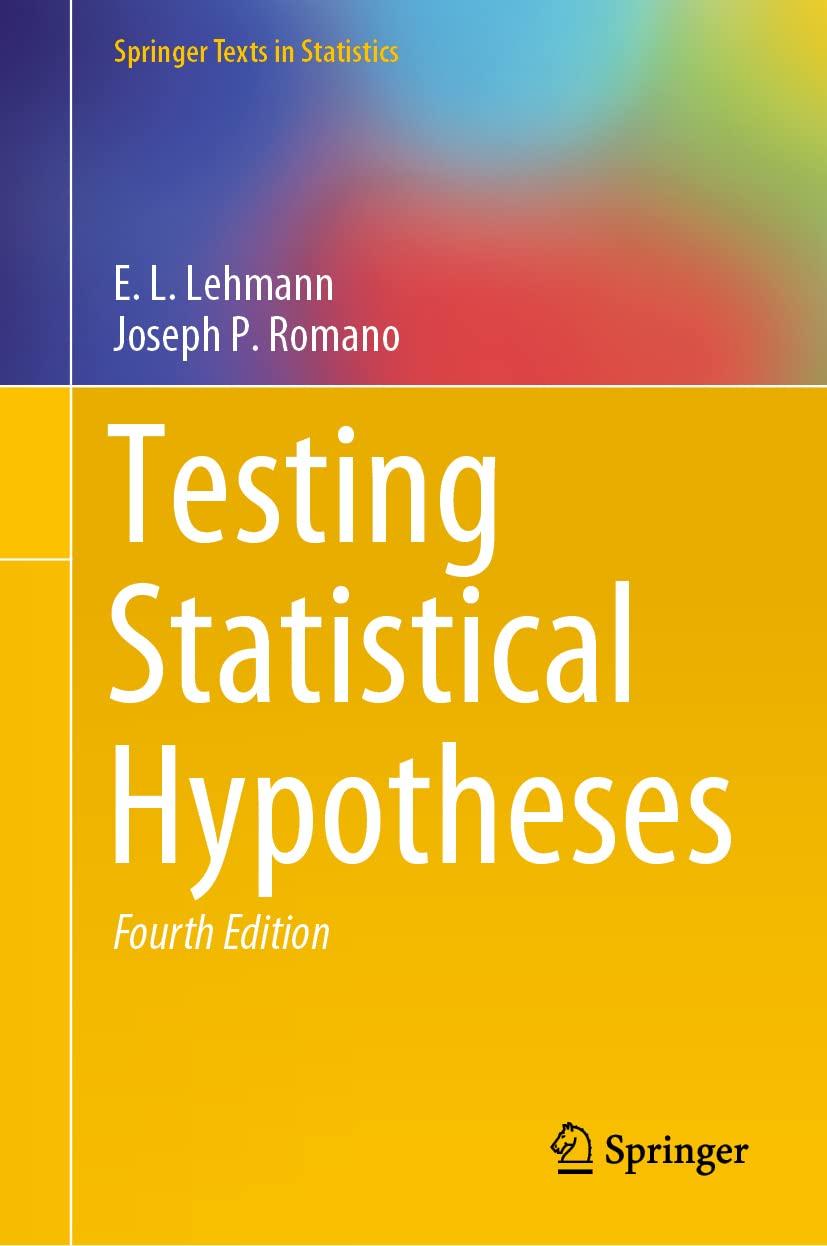(i) Suppose random variables Xn, Yn and a random vector Wn are such that, given Wn, Xn...
Question:
(i) Suppose random variables Xn, Yn and a random vector Wn are such that, given Wn, Xn and Yn are conditionally independent. Assume, for nonnegative constants σX and σY , and for all z, P{Xn ≤ z|Wn} P
→ (z/σX }
and P{Yn ≤ z|Wn} P
→ (z/σY }
Show that P{Xn + Yn ≤ z|Wn} P → (z/
σ2 X + σ2 Y ) .
How do the unconditional distributions behave?
(ii) Suppose Fˆ
n and Gˆ n are (random) distributions, and assume F = N(0, σ2 F ) and G = N(0, σ2 G) are nonrandom. Let ρ be any metric metrizing weak convergence, such as the Lévy metric. If ρ(Fˆ
n, F) P → 0 and ρ(Gˆ N , G) P → 0 , then show ρ(Fˆ
n ∗ Gˆ n, F ∗ G) P → 0 , where F ∗ G denotes the convolution between distributions F and G.
Step by Step Answer:

Testing Statistical Hypotheses Volume I
ISBN: 9783030705770
4th Edition
Authors: E.L. Lehmann, Joseph P. Romano






